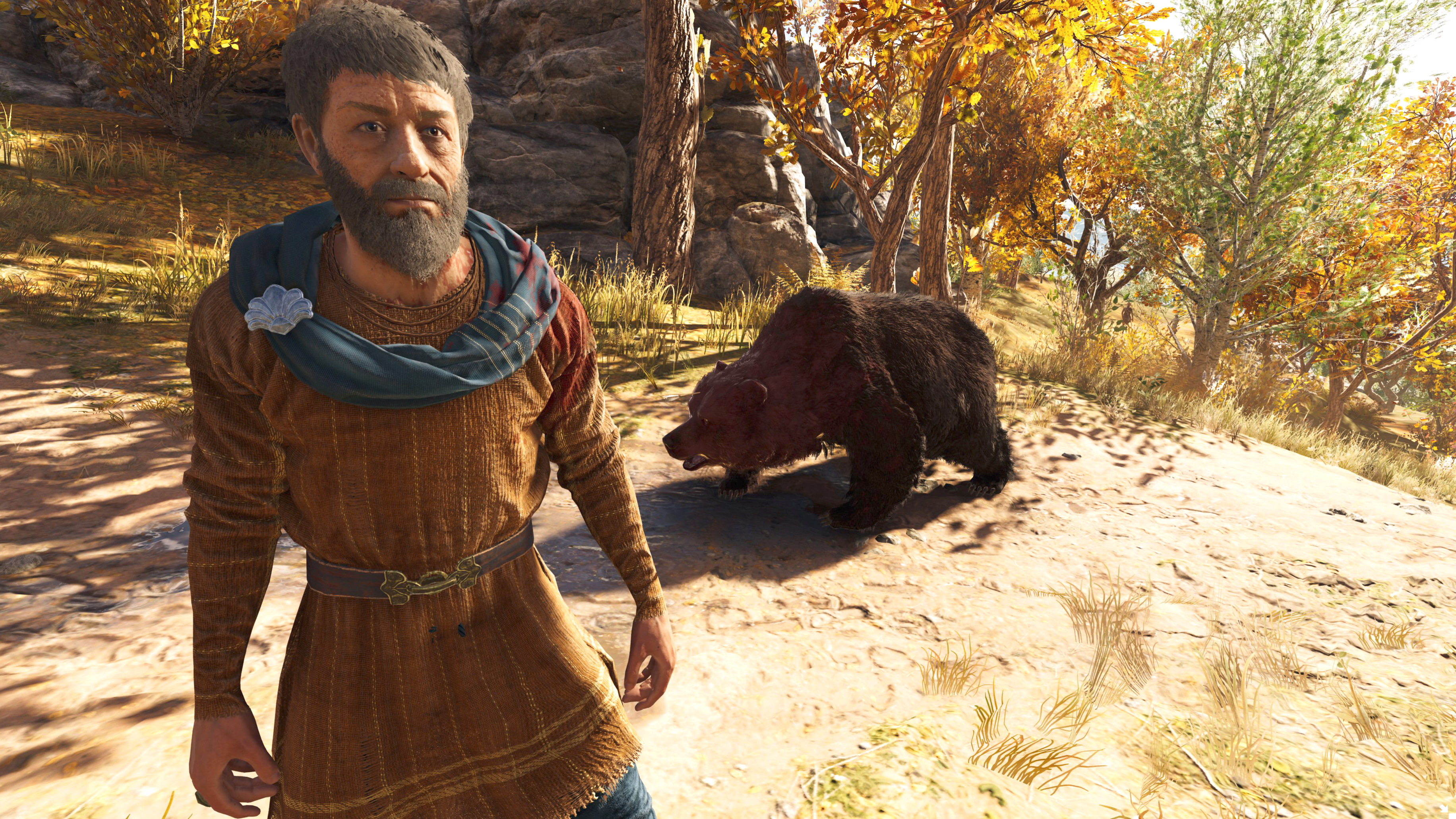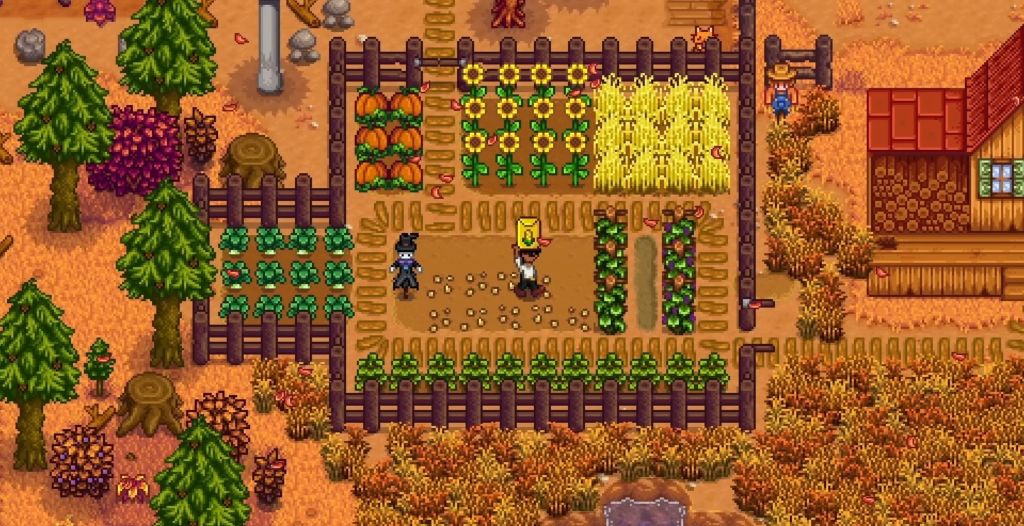In the histories of Classical Greece, wolves have never gotten their due. The epitaph at Thermopylae should say, “Go tell the Spartans, stranger passing by: BEWARE OF WOLVES.” At least that’s my view of ancient Greece after playing Assassin’s Creed Odyssey, which depicts Hellas as a land beset by packs of ravenous canines. In its systems and the ways they interact, Odyssey often plays like as much like a parody of an Ubisoft open world game as it does a new Assassin’s Creed.
The types of open worlds that Ubisoft tends to build always flirt with excess. Ghost Recon: Wildlands is a gorgeous setting transformed into a burlesque of narco-conflict, where practically every mountain has a drug lord’s lieutenant living at the top of it, and the valleys are jammed with drug runners’ convoys. The Division re-created New York in loving detail, and then packed it with paramilitary chores and errands and stocked with an endless supply of targets for your violence. The Far Cry series outright embraced absurdity long ago: their worlds are now jam-packed with rules, scenarios, AI behaviors, enemies, and animals. You spend the whole game watching them smash into each other, or explode into chaos in reaction to your own misadventures.
Videos by VICE
But the way that ethos is applied to the Assassin’s Creed series with Odyssey feels incongruous and even a little grating, particularly following on the heels of Origins. The two games share much in common, and there’s no pretending that Origins wasn’t a game that loved the tragicomedy of a sudden crocodile attack on a hapless fisherman, or the collision of a cavalry troop and a family of pissed-off hippopotami. The difference, at least for me, is that Origins was also a game that always left space for the odd grace note. Odyssey, by contrast, never conjures a moment that it doesn’t immediately try to fill with an animal attack.

I’m only slightly exaggerating about the wolves, by the way. In the game’s starting area, AI wolves would routinely wander into the main town and start mauling people. Every time you are in the countryside, sometimes only like 100 meters outside a town, there’s a high chance of having a pack of wolves start to chase you.
But even when there aren’t any wolves, there are wolves, you know? Depending on where you are, you’ll be pestered by boars, wildcats, sharks, bears, and more bizarrely aggressive wildlife. Small bandit camps are around every corner, seemingly existing for no other reason to try and ambush you, or to be exterminated by you at the behest of some NPC rando—and if you’re a completionist, you’ll revisit many of these sites multiple times to kill similar groups of people for slightly different reasons. The world of Odyssey feels claustrophobic in spite of its awe-inspiring dimensions. There’s a whole world out there and somehow not an inch of empty space.
Because I’m still playing Origins here and there, one year later, I can’t help but keep comparing the two experiences side-by-side. And what I love about Origins is that it never feels like it confuses emptiness with nothingness, or solitude with lifelessness. Nothing happens when you come across a shipwreck in a desert because encountering that enigma is the thing that is happening. It’s a thing that happens between you, the game, and your imagination, and Origins lets the silence of that moment speak for itself.

I don’t know that I ever feel that trust or confidence from Odyssey. Even in its more designed and controlled spaces, like fortresses, it’s a game that tries so hard to make the unexpected happen that it comes across as busy and predictable. Something is going to happen, dammit, and you will leave with a story to tell (“…when, suddenly, a wolf broke out of its cage!”).
For instance, as you raise hell in a region, characters will place bounties on your character, attracting powerful mercenaries who will start hunting you. You can pay off the bounties or fight these little minibosses, but regardless what you do, you’ll spend much of your time being lazily stalked by these goons. But they’re particularly prone to show up in the middle of a stealth attack on an enemy base. The base itself will have bosses of its own, who are often harder to silently dispatch due to having extra hitpoints thanks to being elite characters. So the scenario is always primed to escalate into a massive, button-mashing melee featuring waves of redshirt guards, multiple miniboss characters, and increasing bounty amounts that draw in more bounty-hunting mercenaries.
This kind of spiral is hard to stop once it starts, and it happens so often that Odyssey begins to feel like an Assassin’s Creed game that hates it when you play like an assassin. And it’s here that the RPG conventions—which appeared with Origins but seemed mostly unobtrusive—begin to make Odyssey feel a bit like a giant single-player MMO. Because, as the game forces you into ever larger melees, its action is increasingly predetermined by the levels of your character, the enemies, and your gear. If you’re fighting enemies a level ahead of you, they take unbelievable amounts of punishment before they go down. But the moment you out-level them and don previously level-locked gear, they fall like wheat before the scythe. The relationship between character level and power feels exaggerated in Odyssey where it was muted in Origins, and the overall design calls attention to the artifice of its combat because it is so overalden with grindy, hard-to-avoid fights.
That’s not to say there’s nothing charming about Odyssey. Its world is big and beautiful, and there’s something winning about its sometimes Coen-esque vision of Greece as a land of shady dealmakers, savvy and irritable shopkeeps, and garrulous streetside philosophers. But it’s busy and crowded with too many things I have to deal with, and not enough that I want to do. I miss the stargazing of Origins, or at least, inhabiting a game built by people who thought it might be nice to go stargazing.
More
From VICE
-

Screenshots: 2K, Infogrames -

Screenshot: ConcernedApe -

Screenshot: Electronic Arts -

Screenshot: Warner Bros. Interactive Entertainment
